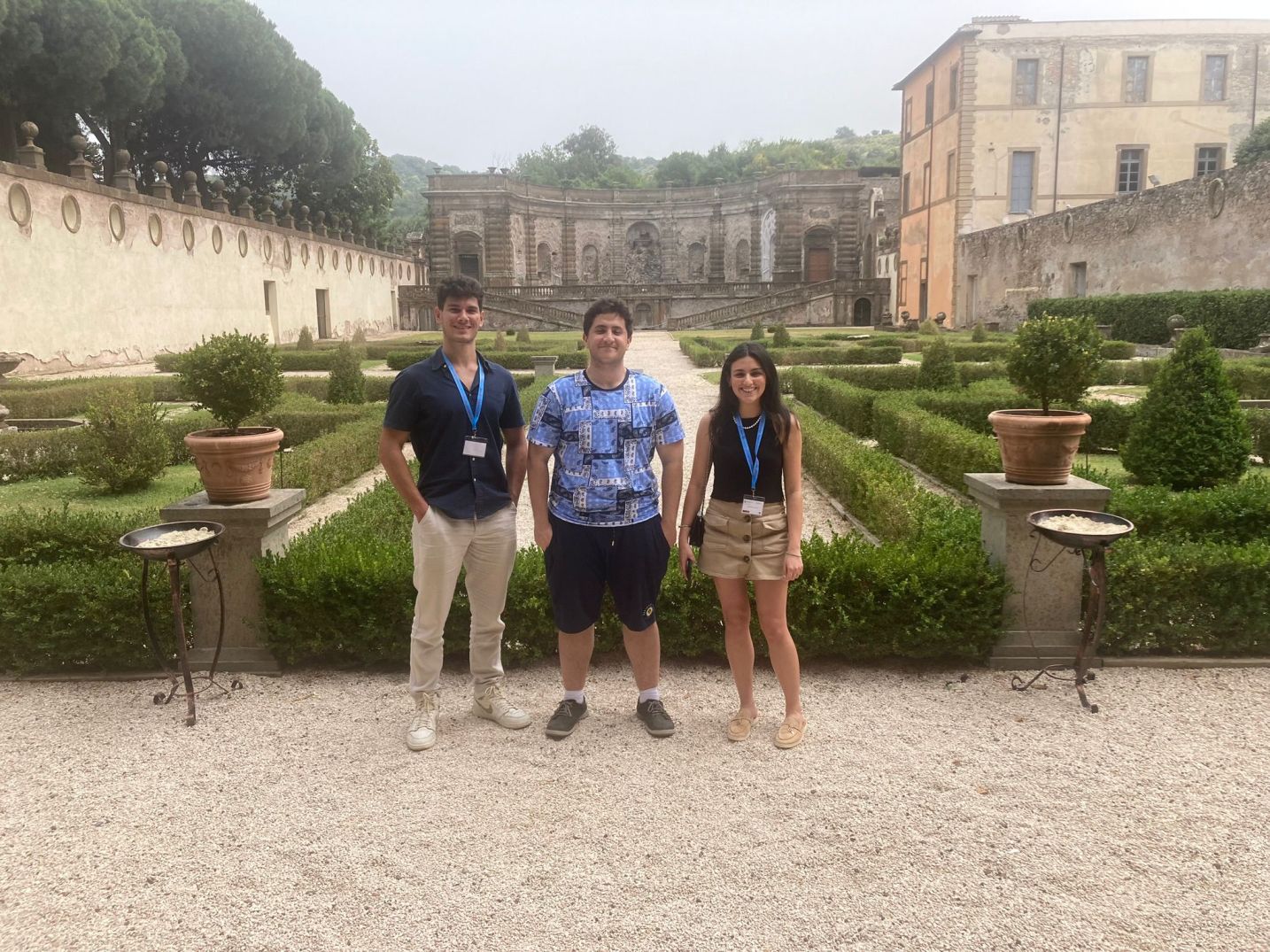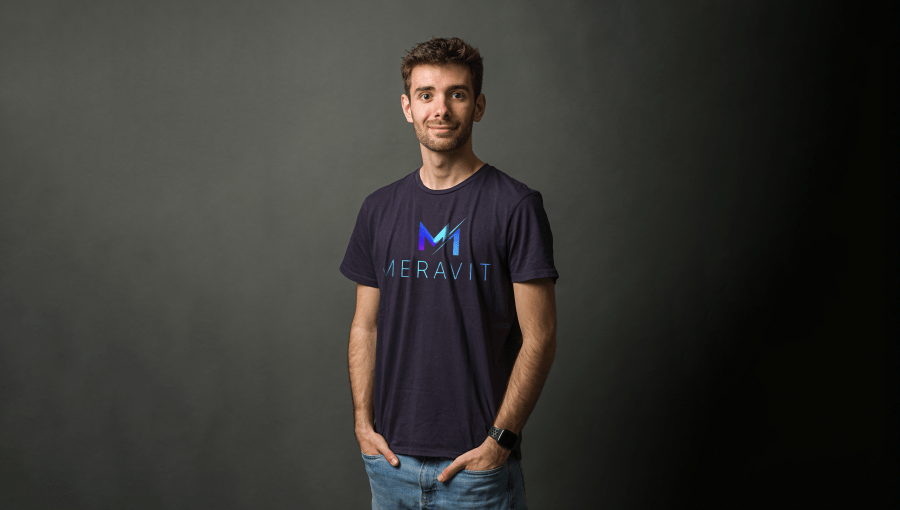JCU Delegates Participate in Prestigious Summer School on Markets and Governments
From June 19 to 21, three delegates from John Cabot University had the privilege of attending the prestigious Summer School “Markets and Governments: A Theoretical Appraisal,” organized by the Economics Department of the University of Rome Tor Vergata and held in the historic Villa Mondragone, in the town of Monte Porzio Catone, near Rome. Recent graduates Giovanni Tremontini and Alessandra Angeletti, and current student Paolo Resta, all Economics and Finance majors, were sponsored by JCU’s Economics Department and provided with scholarships to attend this year’s talks, which revolved around the topic of “Inequality, the design of markets and redistribution.”
Now in its second year, the Summer School, organized for postdoctoral researchers, aims to familiarize participants with the latest literature and interdisciplinary approaches on the relationship between markets and governments, while always keeping a primary focus on Political Economy.

First day
The conference opened with a thought-provoking presentation by Professor Francois Maniquet from the Université catholique de Louvain, Belgium. He discussed the normative interest in inequality, exploring it through two primary lenses: Pareto efficiency, which views inequality as detrimental to growth, and justice-equity, where social welfare is considered an inequality-averse aggregation of individual well-being. He introduced key axioms of equality such as anonymity, which posits that only individual well-being matters, and the Pigou-Dalton transfer principle, which supports the idea of redistributing wealth to achieve greater equality. Professor Maniquet highlighted the challenges in finding a balanced solution between utilitarianism, which is insufficiently inequality-averse, and extreme inequality aversion, which is overly rigid.
Then, Professor Piotr Dworczak from Northwestern University provided insights into optimal redistribution through income taxation and market design, emphasizing inequality-aware strategies. His discussion included theorems of welfare and the Atkinson-Stiglitz theorem, offering a robust framework for understanding how to achieve equitable market outcomes. Professor Jan Eeckhout from the Universitat Pompeu Fabra in Barcelona, Spain, concluded the day’s presentations with an analysis of the profit paradox, adding another layer to the intricate discussion of markets and redistribution.
Second day
Day two featured Professor Francisco Ferreira from the London School of Economics, who spoke on “Equality of Opportunity, Meritocracy, and Public Policy.” Building upon Professor Maniquet’s mention of John Rawls’ theory of justice, Professor Ferreira took a fresh approach to discussing meritocracy by distinguishing between egalitarianism and utilitarianism.
Egalitarianism aims to achieve fair allocation of resources by compensating for unfair circumstances, while utilitarianism focuses on rewarding fair actions. Therefore, it legitimizes inequalities arising from these actions. Professor Ferreira’s insightful presentation was followed by Professor Rajiv Sethi from Columbia University, who shared his research on “The Economics of Group Inequality.” He discussed his research exploring how segregation, peer effects, and group size contribute to persistent inequalities. Integration can disrupt unequal states, but its impact varies based on demographics and may affect investment costs and aggregate skill share, with implications for policy development.
Before the final lecture, participants enjoyed a guided tour of Villa Mondragone, a former papal residence. Notably, Pope Gregory XIII resided at Villa Mondragone when he promulgated the papal bull “Inter Gravissimas,” which introduced the Gregorian calendar we use today.
Finally, Professor Oded Galor from Brown University concluded the day’s schedule by presenting his book, The Journey of Humanity: The Origins of Wealth and Inequality (Bodley Head, 2022). The book examines the roots of economic disparity with a focus on technology and population size. His new approach, called “Unified Growth Theory” reevaluates and integrates Thomas Malthus’ ideas into our current knowledge of growth theory.
Third day
On the third day, the discussions focused on interdisciplinary approaches to the concept of market fairness. Professor Sara Masconale from the University of Arizona examined the logical foundations for justifying boycotts and market activism. The arguments she proposed were based on the concept of “just transaction” that she defined and then implemented to create a framework that would align with similar work of previous philosophers like John Rawls. Following her, Professor Alan Schwartz from Yale University continued this theme, seeking logical methods and structures to analyze court trial decisions and evaluate interactions between markets and governments. To this end, he centered his talk on American jurist Wesley Newcomb Hohfeld.
Conclusion
The three-day seminar proved to be an engaging and immersive exploration into the academic environment. “We had the privilege to assist esteemed professors from prestigious universities worldwide engaging with insightful discussions on the complex subject of market inequalities and policy implications. We would like to express our gratitude to John Cabot University for providing us with the opportunity to attend this insightful event” Giovanni, Alessandra, and Paolo commented.
(Alessandra Angeletti, Paolo Resta, Giovanni Tremontini)





